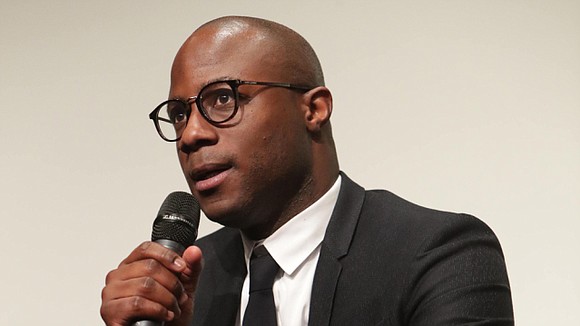Moonlight' Caps Underdog Run with Storybook Finish
CNN/Stylemagazine.com Newswire | 2/28/2017, 7:29 a.m.
By Brian Lowry
CNN
(CNN) -- Setting aside the tumultuous way it happened, "Moonlight" capped off an astonishing award-season run with its best picture victory at the Oscars, having swept the Independent Spirit Awards the night before.
The final and biggest prize concluded what the movie's understandably stunned director, Barry Jenkins, called "a dream" for the low-budget film, which chronicles the coming-of-age story of a gay black man growing up in Miami in three distinct chapters. Different actors play the character as a child and teenager, bullied by his peers, and an adult whose life reflects the consequences of those experiences.
Even before that storybook finish, the movie was already a breakthrough for Jenkins, 37, who had a limited resume, having directed short films as well as the well-regarded 2008 feature "Medicine for Melancholy" before its release. After that lengthy dry spell between movies, he now becomes a sought-after filmmaker, with a Netflix series adaptation of the movie "Dear White People" among his upcoming projects.
The film began as an autobiographical play, titled "In Moonlight Black Boys Look Blue," written by Tarell McCraney. The project was brought to Jenkins, who shared a very similar upbringing with the author: the two men "grew up blocks away from each other" in the same impoverished neighborhood, as Jenkins told NPR, and both had mothers who were addicted to crack cocaine.
Made for a mere $5 million -- a fraction of the budget for most studio releases -- the movie became an instant hit on the film festival circuit, drawing praise for its hypnotic tone and complex depiction of sexuality and masculinity within the African American community.
Lacking big-name stars, "Moonlight" earned a supporting actor award for Mahershala Ali, who played the drug dealer who comes into the child's life and becomes a kind of surrogate father; and a nomination for Naomie Harris as his mother. Ali has been featured in the series "House of Cards" and more recently as the villain in Netflix's "Luke Cage," while Harris -- a British actress -- has appeared in the "Pirates of the Caribbean" films and in the James Bond movies starring Daniel Craig.
"Moonlight" has been hailed as part of a wave of movies released this year with African American leads and themes, along with best-picture nominees "Fences" and "Hidden Figures," both major-studio fare. That recognition followed a two-year shutout of minority nominees in Oscar acting races that gave rise to the #OscarsSoWhite campaign.
Still, "Moonlight" entered the Oscar race as a decided underdog to the heavily favored "La La Land," along with another much-admired indie film, "Manchester by the Sea."
"Moonlight" had currently earned more than $22 million at the North American box office -- enough to make the movie clearly profitable, but the lowest total among the nine best-picture nominees.
With its victory -- slightly belated though it was -- "Moonlight" becomes the fifth of the last six Spirit Award winners to also claim the Oscar.
In a Los Angeles Times interview prior to the ceremony, Jenkins expressed gratification at the reaction to the movie, calling the material "a test of people's empathy at this moment in America's history. And right now, I have to say I'm encouraged by the response."









